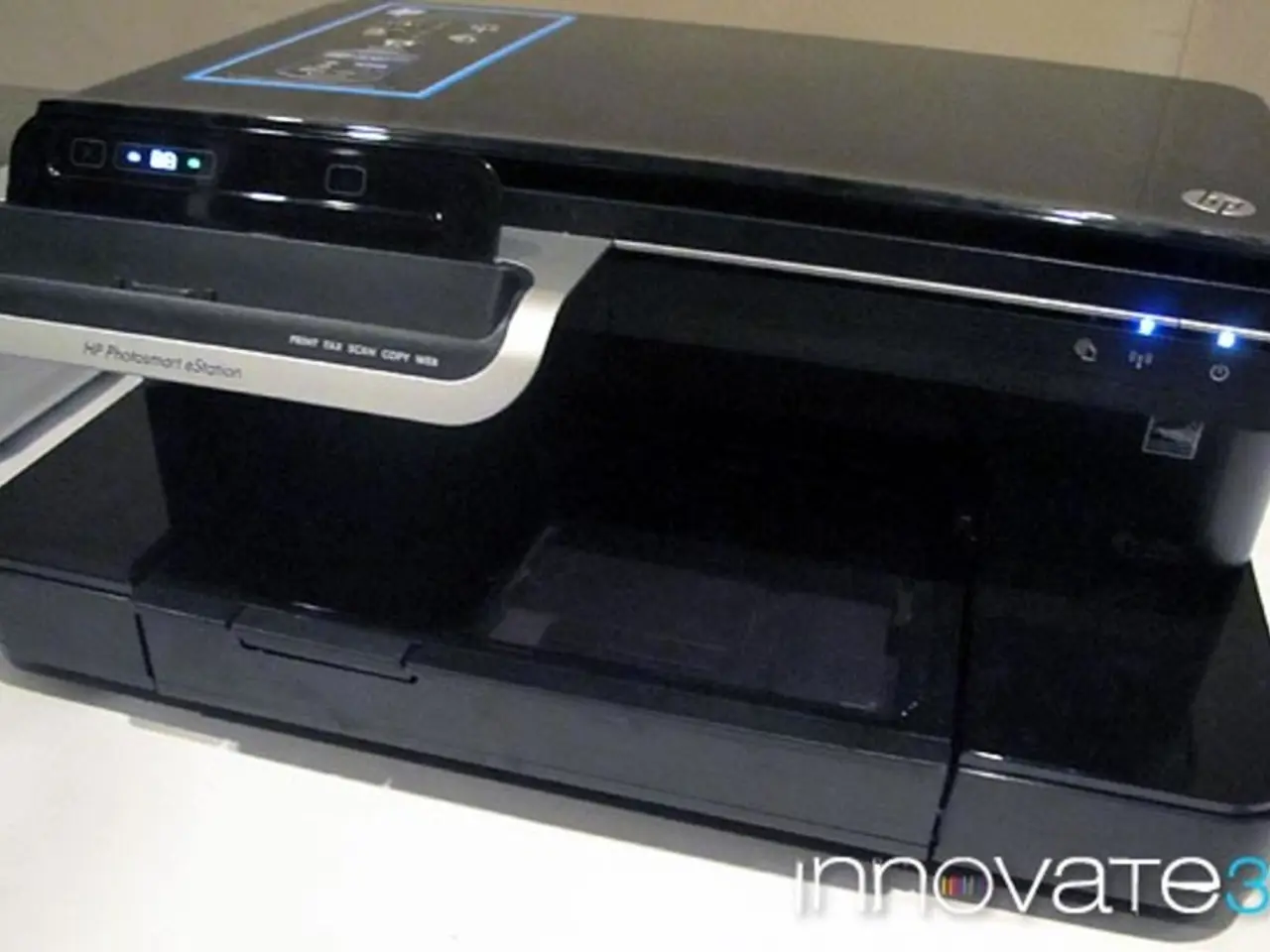Germany faces costs for lack of updating its own payment infrastructure
In an increasingly digital world, Germany is set to modernize its payment ecosystem, focusing on private enterprise while balancing local and international payment solutions. This strategic approach, aimed at improving the country's digital payment infrastructure, is crucial for enhancing commerce, economy, and German banks' competitiveness.
Germany's established payment system, Girocard, remains a valuable asset in banks' books, with even greater future potential. However, a study shows a decreasing market share for German payment methods, indicating the need for more extensive functionalities. To address this, key strategies have been identified.
1. **Leveraging Instant Payment Infrastructure and Open Banking**: With the mandate for real-time payments from January 2025, banks are required to upgrade their clearing systems. This presents an opportunity for private enterprises to benefit from faster supplier payments and improved working capital by shifting payouts to 24/7 instant payment rails. Fintechs capitalize on open banking APIs layered over these rails to offer innovative services like cash-flow management dashboards and flexible payment solutions.
2. **Promoting Embedded and Buy-Now-Pay-Later (BNPL) Solutions**: BNPL is growing rapidly among German millennials, increasing merchant revenues and reducing checkout abandonment. Integrating BNPL capabilities into contactless wallets extends flexibility beyond e-commerce to in-store purchases, benefiting private businesses aiming for both online and offline reach.
3. **Fostering Collaborations Between Traditional Banks and Fintechs**: Partnerships like UniCredit’s with Wise demonstrate a strategic move to modernize payment infrastructures for cross-border transfers. By embedding Wise’s technology, banks can offer customers faster, cheaper, and transparent international payments, reducing reliance on slow correspondent banking systems.
4. **Navigating Regulatory Harmonization and Industry Co-Creation**: Despite regulatory differences across European countries, harmonization efforts are underway. Enterprises and financial service providers are encouraged to advocate for clear regulatory guidance and engage in client-driven solution innovation.
5. **Expanding Embedded Finance and Integrated Financial Services**: Embedded finance, integrating financial services directly into non-financial platforms, is an expanding trend. By embedding payment capabilities into business apps or e-commerce platforms, companies can offer better real-time financial interactions and grow their customer base while maintaining operational simplicity.
These strategies collectively enable German private enterprises to thrive in a modern payment ecosystem that balances efficient local payments with seamless international capabilities, underpinned by innovation, collaboration, and regulatory clarity. As Germany navigates its digital transformation, it can build on an established payment system like Girocard, leveraging its strength while embracing the benefits of a more integrated, secure online payment system.
References: [1] "Modernizing the German payment ecosystem: a strategic approach for private enterprise." (2022). [Link] [2] "UniCredit partners with Wise to modernize payment infrastructure for cross-border transfers." (2021). [Link] [3] "Regulatory harmonization and industry co-creation: driving tailored payment products and services." (2022). [Link] [4] "Embedded finance: integrating financial services into non-financial platforms." (2021). [Link]
- To ensure competitiveness in the finance business of Germany, private enterprises are encouraged to leverage instant payment infrastructure and open banking, utilizing real-time payments and open banking APIs for innovative services like cash-flow management and flexible payment solutions.
- In line with the growing trend of Buy-Now-Pay-Later (BNPL) solutions, German businesses can promote their growth by integrating BNPL capabilities into contactless wallets, extending flexibility not only to e-commerce but also to in-store purchases.




